John Mayall - Interview
by Lisa Torem
published: 14 / 6 / 2019
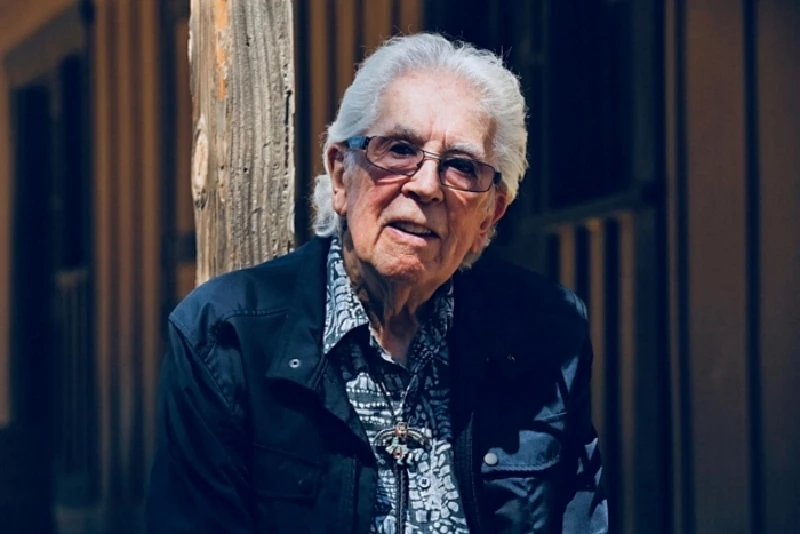
intro
On the heels of new album, ‘Nobody Told Me’, and looking forward to an extensive UK tour in November with new guitarist Carolyn Wonderland plus Greg Rzab and Jay Davenport, Lisa Torem finds that British blues legend John Mayall has much to talk about.
In the mid-to-late 1960s, guitarists Eric Clapton, Peter Green and Mick Taylor pushed through the John Mayall and the Bluesbreakers’ revolving door. Chicagoan Harvey Mandel graced that stage in the early 1970s. The list goes on. Mayall, the legendary British blues harpist/pianist and bandleader extraordinaire, has nurtured an unprecedented number of musicians. But how did he get his start? Although his career blossomed after moving to London in 1963—he would ultimately settle in California —one needn’t forget the groundwork laid earlier in Manchester, where all-night sessions transpired at the Twisted Wheel, where Mayall performed with the Blues Syndicate. At the Marquee Club, with a line-up that included John McVie (Fleetwood Mac), word of Mayall’s talent quickly spread. Throughout his storied career, he has revered blues, but has also courted a variety of other genres. 1971’s ‘Jazz Blues Fusion’ is but one shining example of his musical versatility. Yet fans continued to clamour for the Bluesbreakers’ material. Hence, in 1982, Mayall reunited with Mick Taylor, John McVie and Coli Allen for a two year world tour. Always one eager to collaborate, Mayall enlisted the skills of fellow musicians again for 2001’s ‘Along for the Ride’. “Friends” this time included Gary Moore, Steve Cropper, Otis Rush and Greg Rzab, a Chicago bassist who went on to become an integral part of Mayall’s most recent line-up. In 2008, he launched his solo world tour, including drummer Jay Davenport, who continues to serve as chief percussionist. In 2018, Texan Carolyn Wonderland became this OBE appointee’s first, female lead guitarist/vocalist. With Rzab, Davenport and Wonderland, Mayall will tour the UK this November. This celebratory ‘85th Anniversary Tour’ follows an extensive US tour, starting in early June. Not surprisingly, this “Godfather of British Blues” shows no signs of slowing down. In this interview with Pennyblackmusic, John elaborates on his upcoming tour, talks about the guests on new album, ‘Nobody Told Me’ and pays tribute to his father’s influential record collection. PB: Murray Mayall, your father, was a guitarist. In what way did he influence you? JM: My father had a very good record collection and I learned a lot from listening to all of these jazz and blues records, not so much blues, but from the jazz and guitar players that were prominent in his collection, so, without being conscious of it, you pick up these things and they become part of your upbringing. PB: In 1964 with the Bluesbreakers, you supported American acts such as John Lee Hooker. What did you glean from such experiences? JM: Yes, in the early days we were the ones that were chosen to back John Lee Hooker. That was a great opportunity to play with an American hero of ours. We played a whole tour with John Lee and we did another one with T. Bone Walker. We did several gigs backing up the great Sonny Boy Williamson. When you’re working with your heroes, it’s a great experience. You learn a lot from them about dynamics, without sitting down and talking about it, just by experiencing it alone. PB: Since the Bluesbreakers days, many musicians have crossed your path. Do you have any recollections of working with bassist Jack Bruce? JM: He wasn’t really in the band for very long. The main thing that I can remember about Jack is that he got to play with Eric (Clapton) in the same band. The two of them got together and started talking privately behind my back, and they got the idea to put Cream together, so…I don’t know exactly, but I think Ginger Baker had a lot to do with it, as well, so, whatever it was, the fact that Jack was in the same band as Eric, in my band, gave them the idea that they could get together and put Cream together, so that’s how that came about. PB: Chicago bassist Greg Rzab first played with you from 1999 to 2000, returning in 2009. Another Midwesterner, Chicagoan Jay Davenport has been your drummer since 2009. Rhythm guitarist Billy Watts has also been a long-term player, but your most recent addition is Texan Carolyn Wonderland, who began performing with you in 2018, debuting at the New Orleans Jazz and Heritage Festival last April, according to your website. Tell us about her. JM: Carolyn is a really great guitar player and a singer. I’ve seen her play many times in different clubs and concerts over the years. She is a good choice, I thought, to put in the band this time, and luckily, she said yes to the offer, but it’s been a wonderful experience seeing somebody playing as well as she does, and the audiences really love her. PB: So you worked as part of a trio for the last year, but more recently, as part of a quartet. How do such formats ultimately affect the arrangements? JM: You adapt to what the instrumentation is. Obviously, you get to feature yourself a lot more and you make up for the lack of a fourth person by putting other different things that you play in there. Whatever the line-up is, you do the best you can to make the best music you can out of it. It’s a very exciting thing to play with a trio, but it’s also great to get back again with a quartet format. PB: For the production of ‘Nobody Told Me’, you worked with a series of guests, including Steven Van Zandt, Todd Rundgren and many more, but the album features the work of guitarist Joe Bonamassa. What was the studio chemistry like between you and Joe? His guitar was featured on ‘What Have I Done Wrong?’ and ‘Delta Hurricane.’ JM: It was great. Joe was the only one who got to work with us live in the studio. But it was a great experience for all of us. Having all these guest guitar players added individuality to the tracks. These things are very informal. Nobody was in the studio more than a few hours. We were all speaking the same language. PB: It only took nine days to complete the album, but how long did it take you to write the original tracks? JM: When I have an album to record, I usually, maybe a couple of weeks before we actually go into the studio, think of subject matter or a song that I could write, or songs by other people that I can relate to. It all happens very quickly really. PB: In your title song, ‘Nobody Told Me,’ you sing, “All these crazy changes, as the nights and days go by…” Were there specific incidents that inspired those lyrics? JM: There probably were many, many, many, but you can’t really write about individual ones, it’s more of a general thing that people really do experience. They go through different things, have different experiences. They have enough material so that they can write a song about it. RE: Similarly, on ‘It’s So Tough,’ as a storyteller, you don’t shy away from expressing your opinions. JM: You have to relate to what’s going on around you, so anytime I’m going to make an album I look around and pick up a newspaper and you can always find subject matter to write about. It’s always been the way. You want to keep your ideas current and put them into song. PB: Regarding the selection of guest artists, Rush guitarist Alex Lifeson is not generally considered a blues player, yet he totally nailed the Jeff Healey cover, ‘Evil and Here to Stay’. That was a refreshing surprise. Had you intuited that kind of result? JM: No, but the wonderful thing about it was, once the word was out that we were going to have guest guitar players, the ones that you hear on the album that came through, they were the ones that wanted to do it. I had no pre-conceived ideas about what they would be playing on the album. They added their talents to it and they all sound different from each other and they are all very proud of what they did, so I’m really happy that they all came forward. PB: The cover of Magic Sam’s ‘What Have I Done Wrong’ differs radically from the original version. For example, your rendition relies heavily on horns and blazing guitar. This arrangement contrasts so vividly… JM: Well, I always try and do something different with it—in each song that I do, if I know that something was previously recorded by another artist, I don’t want to do the same thing. I want to make it my personal take on the subject, so the story that it tells is something that I can relate to. I use whatever instrumentation that I think is necessary for it and put that on there. PB: The keys of the tracks are listed on the credits. Do you expect the listeners to play along? JM: I’ve always done that because musicians want to know how to play some of the songs that I do—it’s always very helpful for them to know what key it’s going to be in. It’s something that people have remarked on over the years as being a helpful guide to upcoming musicians. PB: Over the course of your career, you have fluctuated between a hard-blues-based song list and softer, more reflective, acoustic-based material. What factors influence these choices? Life in California versus living in the UK? Or your mood on a particular day? JM: I don’t think it’s any of those things, really. If I write a song about some subject, there’s usually enough material in it to write a song about. It’s quite easy really to write a song once you know what you’re going to be singing about, so you pick a subject and you pick as many aspects to it as you can and just put them into verse—so it’s a process as simple as that for me. PB: What do you believe you have passed on and/or learned from working with other artists? JM: You learn a little something from everybody you work with. The reason you chose them in the first place to play in your band is so that you can enjoy what they’re doing, and you may not specifically try and learn something from it, but it brushes off, in certain things, in the creation of the music every night. It’s a learning experience every day. Certainly I like to do new things every time we play and you put those thoughts also into recording. PB: ‘Room to Move’ from the 1969 album, ‘The Turning Point’ has been the quintessential crowd-pleaser since its inception. What’s it like to perform this signature piece at this stage of your career? JM: It’s something that allows total freedom to let the harmonica do its job and to put little rhythmic noises into your microphone, so it’s something that people enjoy over the years. And we found that If we play it in a show live, it’s always something different and a communication thing that people enjoy. We don’t play it every night but I know that when we do people really relate to it and have fun with it. PB: As a multi-instrumentalist, if you had to define your relationship with said instruments… JM: The keyboard has always been my main instrument, but guitar and harmonica would be in second and third places, I suppose. The harmonica is more linear. It has no chords, but the piano has the most versatility for me. I’m not very good at the guitar, to be able to do the same things… PB: What advice can you offer to an up-and-coming band leader? JM: I don’t know about the bandleader part; it can be quite trying, but the main job of a bandleader is to make sure that the people you are putting in your band are the right ones, who can get along with each other in addition to playing music. I think the music is second place really. You have to get along with these people and basically live with them on the road. That’s the main thing. You have to get the right people in that department before they even play a note. PB: Soon you will be embarking on two major tours: In June, key cities in the USA and in November, in the UK on behalf of your 85th Anniversary Tour. What are your expectations? Is the upcoming tour unique? JM: All the tours are different in the sense that we get to new places, some familiar places, so there is not much difference in the structure of the tours. We will just have to go out there and play and create music every night. There’s a different show every night, a different set list. There are so many things to draw from that I don’t usually have any trouble putting together something. There will be some new stuff and some old stuff. But the main thing we should do is to reflect on what we’re doing now—communicate that energy with us to the audience. That’s what we do. Our tours are very simple. We don’t have a big backline of people. We just have one tour manager that goes with us. We keep it very, very simple so we can travel light and be from one place to another, whereas some of the bigger bands have so much equipment and parts to their entourage that they can’t do it as fast as we can, so we like the momentum of it all and the idea of playing something different every night. PB: As for the UK, will you be performing in places that are already familiar or places that will be new? JM: I’m not sure about the new ones, but probably the majority of the concerts that we play we’ve played in many, many times over the years, but there’s always some surprises, here and there, but it doesn’t really matter where you play as long as you treat the audience with appreciation and do the best you can with them and the music that you’re going to give them. PB: Do you expect to have free time during the tour? JM: The thing is, you’re working every night in a different town which means that you’re travelling most of the day and then they check you into a hotel. Then you go to the gig and you have to sleep. It’s the same pattern every night so every day you’re travelling mostly, so there isn’t much time for sightseeing, other than looking out of the bus window. PB: Did your move to California influence your career? JM: It has nothing to do with my career at all. Where a person lives has to do with where they’re most comfortable. I’ve lived in California for more than half my life now. It’s something that agrees with me, but might not agree with somebody else. Everybody finds the right place where they feel most comfortable. PB: Your voice is in excellent shape. Is this simply good luck or do you work with a vocal coach? JM: No, I’ve never worked with a coach. I just do the best I can with what I’ve got. It seems to be something that has held up over the years and it’s got a bit more gravel in it, I suppose, as age goes on, but as long as I get the energy and the strength of the song over that’s the main part. PB: Thank you.
Band Links:-
https://www.johnmayall.com/https://www.facebook.com/JohnMayall/
Have a Listen:-
Picture Gallery:-
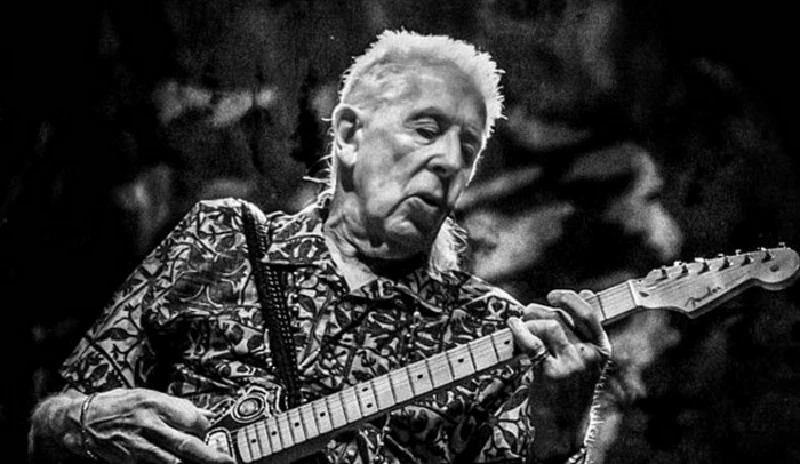
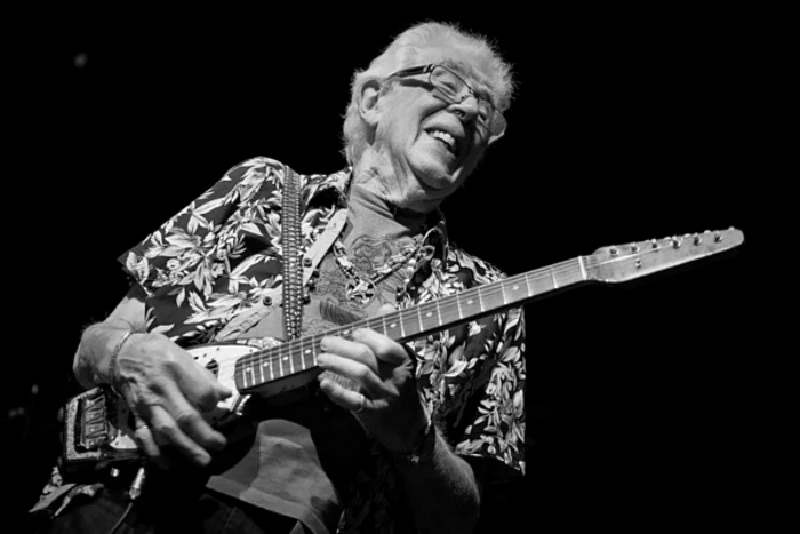
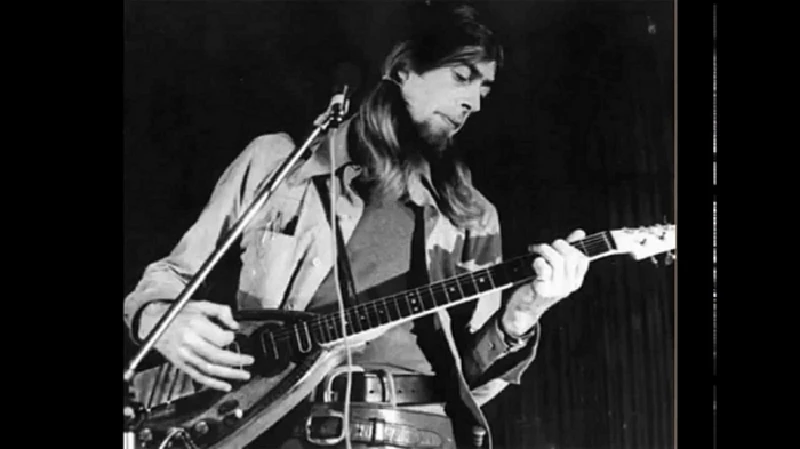
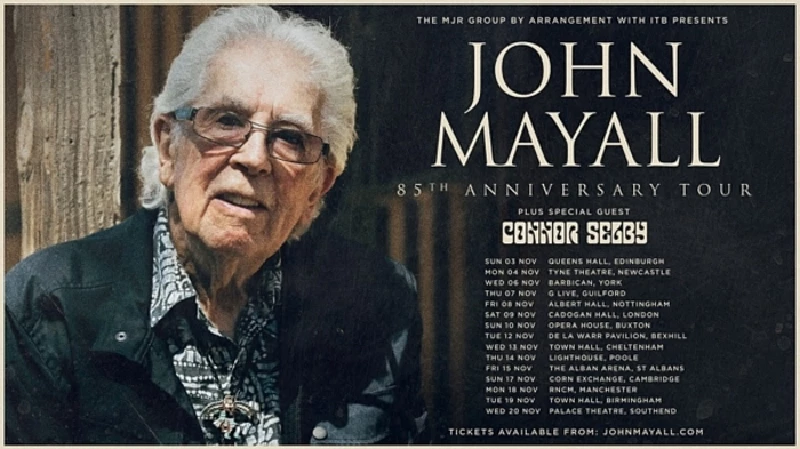
profiles |
|
1933-2024 (2024) |
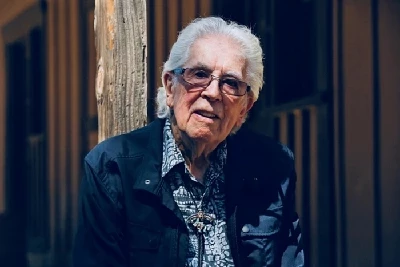
|
| Nick Dent-Robinson commemorates blues titan John Mayall, who spearheaded a whole movement of musicians. |
live reviews |
|
Opera House, Buxton, 30/10/2014 |
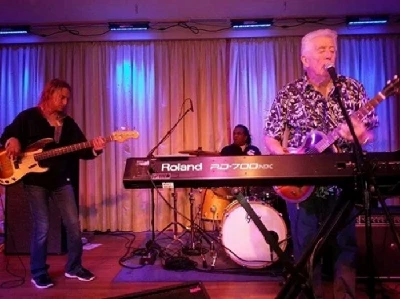
|
| Nicky Crewe find nearly eighty-one year old blues legend John Mayall performing very much in the present at a memorable gig at the Opera House in Buxton |
| Mayne Stage, Chicago, 18/9/2012 |
reviews |
|
The Sun is Shining Down (2022) |
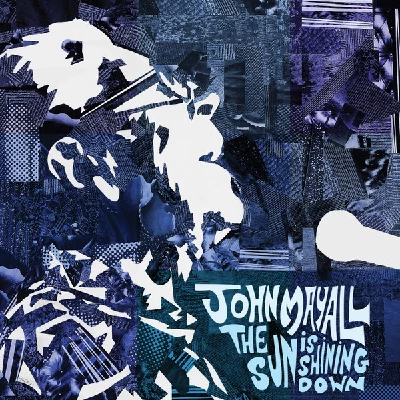
|
| Latest album from John Mayall reminds us why he is known as the godfather of British Blues, as, working with a fantastic array of contemporary musicians, he proves still has what it takes to please his fans as he approaches his ninetieth birthday next year |
most viewed articles
current edition
Peter Doherty - Blackheath Halls, Blackheath and Palace Halls, Watford, 18/3/2025 and 21/3/2025Armory Show - Interview with Richard Jobson
Liz Mitchell - Interview
Lauren Mayberry - Photoscapes
Deb Googe and Cara Tivey - Interview
Max Bianco and the BlueHearts - Troubadour, London, 29/3/2025
Garfunkel and Garfunkel Jr. - Interview
Maarten Schiethart - Vinyl Stories
Clive Langer - Interview
Sukie Smith - Interview
previous editions
Heavenly - P.U.N.K. Girl EPBoomtown Rats - Ten Songs That Made Me Love....
Trudie Myerscough-Harris - Interview
Doris Brendel - Interview
Beautiful South - Ten Songs That Made Me Love...
Dwina Gibb - Interview
Pulp - Ten Songs That Made Me Love...
Kay Russell - Interview with Kay Russell
Barrie Barlow - Interview
Sound - Interview with Bi Marshall Part 1
most viewed reviews
current edition
Davey Woodward - Mumbo in the JumboNigel Stonier - Wolf Notes
Wings - Venus and Mars
Kate Daisy Grant and Nick Pynn - Songs For The Trees
Only Child - Holy Ghosts
Neil Campbell - The Turnaround
Philip Jeays - Victoria
Darkness - Dreams On Toast
Suzanne Vega - Flying With Angels
Charles Ellsworth - Cosmic Cannon Fodder
Pennyblackmusic Regular Contributors
Adrian Janes
Amanda J. Window
Andrew Twambley
Anthony Dhanendran
Benjamin Howarth
Cila Warncke
Daniel Cressey
Darren Aston
Dastardly
Dave Goodwin
Denzil Watson
Dominic B. Simpson
Eoghan Lyng
Fiona Hutchings
Harry Sherriff
Helen Tipping
Jamie Rowland
John Clarkson
Julie Cruickshank
Kimberly Bright
Lisa Torem
Maarten Schiethart